detail profile sh c3 b4suke oni
Peran Yang Di Mainkan Shôsuke Oni
 Seeking revenge against the guard who...
Seeking revenge against the guard who...Captive's Island 1966
Seeking revenge against the guard who tormented him, a young man returns to the island where he was imprisoned in reform school. But his plans for vengeance are disturbed when he encounters a strange and beautiful young woman
 Years of warfare end in a...
Years of warfare end in a...Samurai Spy 1965
Years of warfare end in a Japan unified under the Tokugawa shogunate, and samurai spy Sasuke Sarutobi, tired of conflict, longs for peace. When a high-ranking spy named Tatewaki Koriyama defects from the shogun to a rival clan, however, the world of swordsmen is thrown into turmoil. After Sasuke is unwittingly drawn into the conflict, he tracks Tatewaki, while a mysterious, white-hooded figure seems to hunt them both. By tale’s end, no one is who they seemed to be, and the truth is far more personal than anyone suspected. Director Masahiro Shinoda’s Samurai Spy, filled with clan intrigue, ninja spies, and multiple double crosses, marks a bold stylistic departure from swordplay film convention.
 When her only relative her elder...
When her only relative her elder...A Trap 1965
When her only relative, her elder brother is accused of robbing and murdering an old woman loan-shark, pretty, young Kiriko travels from her home in Kyushu to Tokyo to get Japan's top lawyer to defend her brother. Unfortunately her naive idealism is shattered when the lawyer refuses to take the case based on her insufficient funds. What follows is a long determined revenge plot that sees the heroine become a Tokyo bar hostess and worse to punish the lawyer. The plot thickens with another murder mystery and a sleuthing reporter.
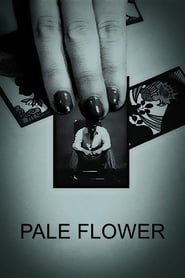 A gangster gets released from prison...
A gangster gets released from prison...Pale Flower 1964
A gangster gets released from prison and has to cope with the recent shifts of power between the gangs, while taking care of a thrill-seeking young woman, who got in bad company while gambling.
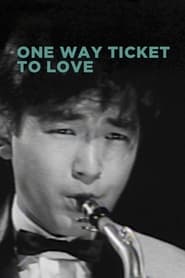 The backstage romances of an egotistical...
The backstage romances of an egotistical...One Way Ticket to Love 1960
The backstage romances of an egotistical singer and his under-valued manager, a lovelorn bandman and a nude dancer.
 A lighthearted take on director Yasujiro...
A lighthearted take on director Yasujiro...Good Morning 1959
A lighthearted take on director Yasujiro Ozu’s perennial theme of the challenges of intergenerational relationships, Good Morning tells the story of two young boys who stop speaking in protest after their parents refuse to buy a television set. Ozu weaves a wealth of subtle gags through a family portrait as rich as those of his dramatic films, mocking the foibles of the adult world through the eyes of his child protagonists. Shot in stunning color and set in a suburb of Tokyo where housewives gossip about the neighbors’ new washing machine and unemployed husbands look for work as door-to-door salesmen, this charming comedy refashions Ozu’s own silent classic I Was Born, But . . . to gently satirize consumerism in postwar Japan.
 Wataru Hirayamas outwardly liberal views on...
Wataru Hirayamas outwardly liberal views on...Equinox Flower 1958
Wataru Hirayama's outwardly liberal views on marriage are severely tested when his daughter declares that she is in love with a musician and is adamant to live life her own way, instead of agreeing to an arranged marriage. Outwitted by his female relatives, Hirayama stubbornly refuses to admit defeat.
 A young Tokyo salary man and...
A young Tokyo salary man and...Early Spring 1956
A young Tokyo salary man and his wife struggle within the confines of their passionless relationship while he has an extramarital affair.

 A vengeful contractor hires a series...
A vengeful contractor hires a series...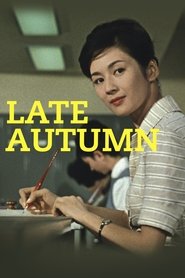 A woman and her daughter are...
A woman and her daughter are...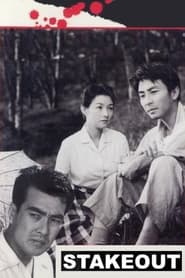 Two detectives begin a stakeout based...
Two detectives begin a stakeout based...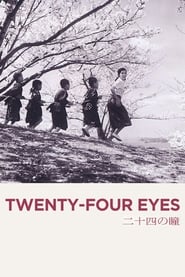 From 1928 to 1946 the lives of 12 young...
From 1928 to 1946 the lives of 12 young...